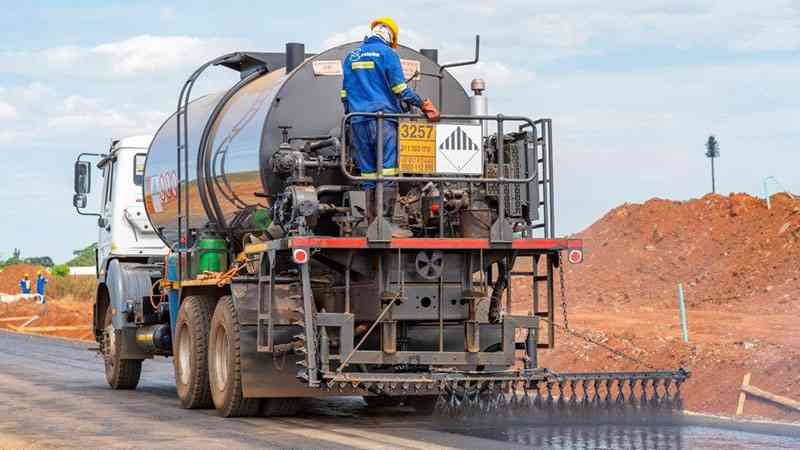
First there were national shortages of HIV medication, then of HIV tests, now Swaziland lacks the lab tests essential for initiating and managing HIV patients on treatment.
To make matters worse, the country chose not to apply for the international funding that could have safeguarded antiretroviral (ARV) stocks.
Shortages of HIV programme supplies began making headlines in mid-2011. Media reports have largely ascribed stock-outs to reduced revenues from the Southern Africa Customs Union (SACU), due to the global economic downturn.
In 2010, SACU began to review its revenue-sharing formula, including the possibility of re-allocating Swaziland, Lesotho and Botswana smaller shares.
Changes to the formula remain under review, but by mid-2010, declines in overall SACU revenue were enough to raise alarm among academics at the University of KwaZulu-Natal, who advised Swaziland to move away from over-reliance on SACU disbursements to fund its HIV programme.
But Swaziland chose not to apply for Round 10 funding from the Global Fund to Fight HIV, TB and Malaria. Its July 2010 Round 10 application — which was ultimately denied — focused instead only on strengthening community health systems.
When Global Fund money for ARVs officially ended in April 2011, the Swazi government informed the international financing mechanism it would take over ARV funding after allocating funds from its national budget.
The most likely lifeline may only come in late 2013. The decision was driven by government beliefs that the percentage of the national budget it had allocated to treatment was enough, according to Vulindlela Msibi, executive director of Swaziland’s country coordinating mechanism (CCM), which manages Global Fund money.
- Chamisa under fire over US$120K donation
- Mavhunga puts DeMbare into Chibuku quarterfinals
- Pension funds bet on Cabora Bassa oilfields
- Councils defy govt fire tender directive
Keep Reading
According to Aymeric Péguillan, Swaziland head of mission for Médecins Sans Frontières, the consequences of the government’s decision not to seek international support for HIV treatment were predictable.
“In the Round 10 application, there was no line for commodities so it was an already accepted situation that government was going to take over the huge majority of ARV procurement,” Péguillan said. “Everyone could see this coming.”
While the government initially assured development partners like MSF that health and education would be protected as it cut spending amid tough financial times, this has not been the case.
Samuel Vusi Magagula, deputy director of health services with Swaziland’s Ministry of Health, did not respond to requests for comment.
Msibi said the country was now looking to re-apply for ARV funding as part of the Global Funds next round, and is considering reallocating current Global Fund financing to the ARV programme. In a statement, the CCM has called Round 11 a “do-or-die” moment for the country’s HIV and tuberculosis response.
However, the Global Fund has more than halved the estimated amount of money available in Round 11 as lower interest rates and a weaker dollar conspire with possible decreases in donor funding.
If Swaziland is successful, it will only see this money in late 2013.
After ARV stock-outs were reported, the US President’s Emergency Plan for Aids Relief (PEPFAR) gave the country US$7 million in emergency funding in August; however, this was only for first-line ARVs.
With this assistance, the government was able to sign a 12-month tender for the drugs via the US-funded Supply Chain Management Systems project, according to PEPFAR spokeswoman, Kate Glantz. In August, South Africa announced it would lend its embattled neighbour about $313 million.
According to South Africa’s National Treasury Department, it is waiting for Swaziland to sign the papers needed to disburse the first $104 million tranche, which should go to priority areas such as health and education.
Swaziland now has a buffer stock of first-line ARVs that should last until April 2012. However, the country was still experiencing stock-outs of essential laboratory supplies – which may be tied to partially delayed Global Fund disbursements. Slated to support programmes, salaries and some of these lab supplies, the first disbursement of $10.9 million arrived in the country last week.
Despite several bail-outs this year by international donors, neighbouring countries and international NGOs, Swaziland remains in the grips of a months-long shortage of lab reagents needed for CD4 count testing, which measures the immune system’s strength and is needed to start patients on ARVs, as well as toxicity testing important in monitoring patients’ responses to treatment.
Although the situation has improved, with MSF and PEPFAR-supported programmes sourcing reagents for some areas of the country, Péguillan said it was far from ideal and as of mid-October, there had been no government response to the shortages.











